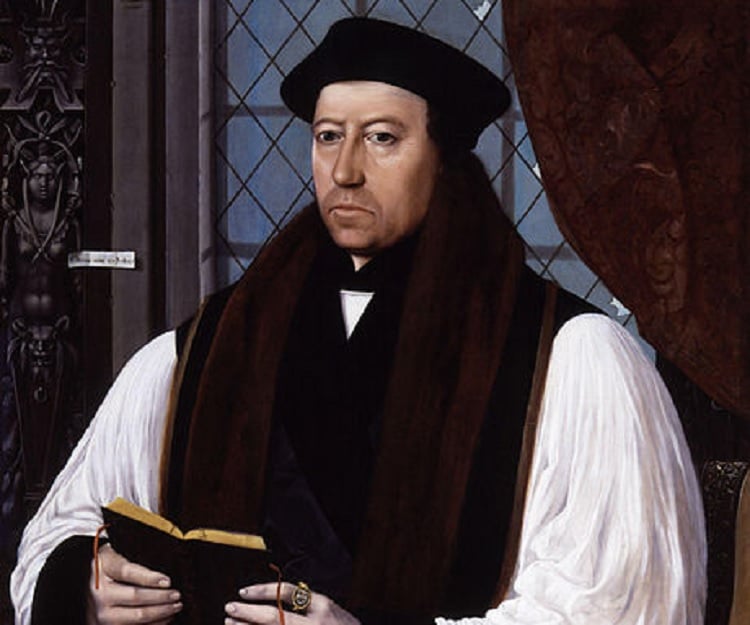For the handful of hoodlums who follow my blog closely, it might at some point have occurred to one or another of you that, “Hey! Is this guy a Protestant?” Good question.

It is true. I believe that there is indisputable evidence suggesting that Protestantism is a spiritual form born out of and wholly adequate to the capitalist social formation. As I argued in Weber and the Persistence of Religion (Routledge 2006), capitalism gave rise to Protestantism, not the reverse.
But, should that prove true, and should capitalism prove to be a peculiarly noxious form of self-domination, which I believe is true, then who but a masochist would continue to call her or himself a Protestant? Who, indeed.
Let us now assume, however, that no social formation has a corner on the God market; that, with apologies to Leopold von Ranke, every age is equally distant from God. (Admittedly, this also means that each is equally near.) In that case, our aim might be not to defend Reformation “culture” as much as to explore how the gospel makes itself known in a world that is now shaped entirely by the capitalist social form.
Elsewhere I have attempted to call attention to what I call “graceful bodies,” meaning by this bodies — constrained by time and space —that convey grace. I believe that relics can be graceful bodies. I believe that chapels can convey grace, and liturgies, and candles, oil, incense, music, even institutions, offices, scripture, and theology; and, let us not forget the waters of baptism, the sacred loaf and the sacred cup. Such attention to graceful bodies, I admit, makes me a highly unusual Protestant. (Just as it places me and my kind squarely in the cross-hairs of Diana Butler-Bass’s “Third Great Awakening.”) Nevertheless, I am convinced that the God Who was truly present in the person of Jesus of Nazareth — in the flesh, in the body, with all of the limitations and constraints that this suggests — is not the least troubled by graceful bodies.
This suggests that a self-critique of the community of faith cannot begin — as so often Protestant critiques of Roman piety begin — with a critique of embodied grace. Theologically, such a critique simply does not fly. Instead, I propose that our self-critique begin with the official and non-official abuses of embodied grace — where these instruments of grace are bent ungracefully toward other ends; as, for example, when some “ministers of darkness” bend the Sacred Word toward hatred, racism, exclusion, misogyny, nationalism, militarism, homophobia — “to their own destruction.”
By guiding us back to the Word of God, as an embodied and embodying presence, Reformers sought to shed light on such abuses. And, yet, this did not prevent them from intently listening to and seeking guidance from saints in earlier ages who had sought to do the same. It did not prevent them from seeking divine guidance from and finding such guidance in graceful bodies.
This attentiveness to the voices of the dead is sometimes rejected by Protestants because it is felt to fall to close to Roman piety. (As though the voices articulated in Holy Scripture or in the Creed are not themselves voices of both the living and the dead.)
If Protestantism is to avoid the echo-chamber created by its own voice, or, if it is to avoid falling victim to the spell cast by the capitalist social form, it must learn to hear and listen to voices articulated in social formations that were not capitalist — not because these social formations are more divine, but because they arise from a different place and therefore see and hear God’s guidance in ways that we need to see and hear.
“Non-capitalist spiritual formation” does not translate into “historically or socially disembedded spiritual formation”: there is nothing the least divine about Neoplatonic or Aristotelian thought or about social formations that are not shaped by the abstract value form of capital. Aristotle’s defense of the so-called “natural slave,” or his defense of both domestic and public hierarchies of power and domination are not more divine for their submission to the natural order.
For the anxious longing of the creation waits eagerly for the revealing of the sons of God. For the creation was subjected to futility, not willingly, but because of Him who subjected it, in hope that the creation itself also will be set free from its slavery to corruption into the freedom of the glory of the children of God. For we know that the whole creation groans and suffers the pains of childbirth together until now. And not only this, but also we ourselves, having the first fruits of the Spirit, even we ourselves groan within ourselves, waiting eagerly for our adoption as sons, the redemption of our body (Rom. 8.19-23).
To suppose, as all too many do, that Stoicism is an acceptable form of natural theology wholly compatible with orthodox Christology is to embrace Romans 1-2, and 13 while completely ignoring the better part of the remainder of Saint Paul’s letter to the Romans. There we learn that, while the natural order is sufficient to guide those without Christ, in the end it is sufficient only for their condemnation (Rom. 1.20).
The natural hierarchies and forms of domination that underlie traditional societies — whether Roman or pagan or Chinese or Indian or African, it makes no difference — need always to be made subject to radical Christological critique, where all natural hierarchies are made to give way: “There is neither Jew nor Greek, there is neither slave nor free man, there is neither male nor female; for you are all one in Christ Jesus” (Gal. 3.28).
This most unnatural, forced, non-compliant intervention is, of course, itself clothed in flesh (1 Cor. 1-2), which constitutes its very offense. Those therefore who reject the fourteen centuries of witness prior to 1517 on no other grounds than the all too apparent historical and social embeddedness of this witness therein display a complete misunderstanding of the mystery to which Saint Paul attests in his first letter to the church at Corinth (1 Cor. 2).
But just as it is written,
THINGS WHICH EYE HAS NOT SEEN AND EAR HAS NOT HEARD,
AND which HAVE NOT ENTERED THE HEART OF MAN,
ALL THAT GOD HAS PREPARED FOR THOSE WHO LOVE HIM.
For to us God revealed them through the Spirit; for the Spirit searches all things, even the depths of God (1 Cor. 2.9-10).
That mystery is the emancipatory character of the incarnation, which, judged by — yes Stoic — human wisdom, is nothing but foolishness (1 Cor. 1.18).
No. There is nothing specially sacred or divine about the historical and social formations that constrained and shaped communities of faith prior to the sixteenth century. And, yet, they do offer us a glimpse into spiritual formations that, by definition, were not structured by the abstract value form of capital and which, for this very reason, may offer us clues to our own blindness.
The danger, as ever, is that we will mistake non-emancipatory dimensions of pre-capitalist piety — such as the nearly ubiquitous misogyny — for good news. This is not good news.
But this also means that we are invited to cast a critical eye on the non-emancipatory dimensions of the Reformation itself — chief among which must be the central role played by the abstract value form of capital. This abstract form and its dynamic relationship to the bodies it occupies lent itself all too easily to a Protestant habit of absolutely differentiating faith from works, spirit from flesh, eternity from time, gospel from law. To the extent that the Reformation pinned its hopes on this radical differentiation, it borrowed a page from the abstract value form itself, giving rise to what is transparently a uniquely capitalist variety of spiritual piety and practice. (And a variety of spiritual piety and practice, I might add, that is infinitely transferable to Islam, Buddhism, Hinduism, and Taoism once these cultural forms too are invaded by this peculiar social form of capital.)
Recognizing the central role capital has played in spiritual formation does not require that we reject the Reformation. And, yet, it might require that we submit its canons to the same critical scrutiny Protestants have been all too willing to apply to other social and historical formations. As Karl Barth urged us: “Ecclesia reformata semper reformanda.” Of course. But reform what?
_______________
Joseph W.H. Lough teaches economic history and theory at the University of California, Berkeley. He holds an MA in History from Pacific School of Religion and a Ph.D. in European History from the University of Chicago.






